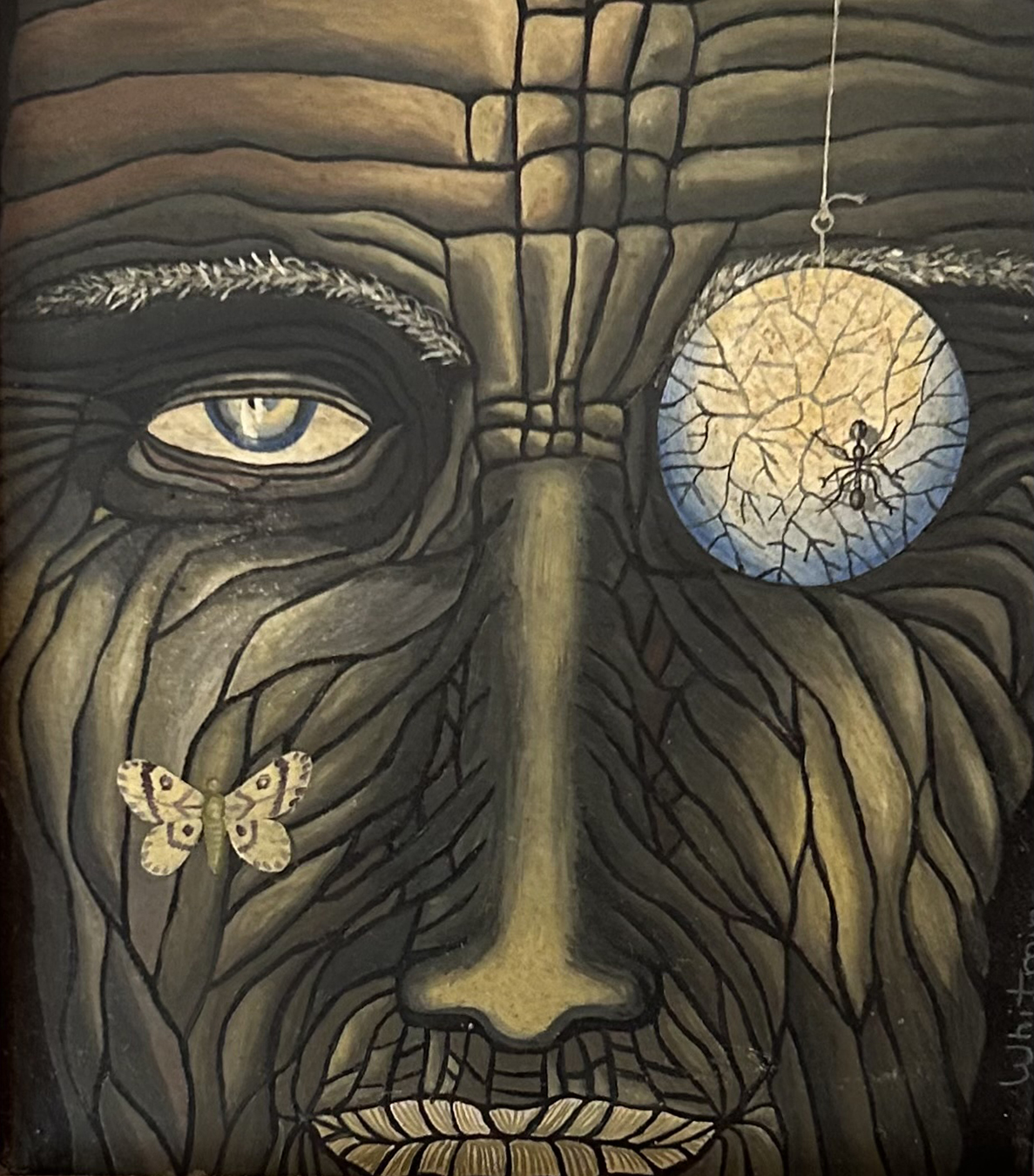TAWA at 45
The Exhibition

Ben Whitmire
Untitled
acrylic on panel, undated; 9″h x 8″w
Benjamin Whitmire (1925-2003) was born in South Carolina. He and attended Berea College, Berea (KY) and studied at Cooper Union in New York City. Driven to express himself, Ben painted, photographed, and wrote poetry and prose. He and his wife Jean were inveterate collectors and spent many a weekend scouring flea markets for Victoriana, porcelain, jewelry, vintage clothing, and anything else that caught their well-trained and exacting eye.
As with most hard-core collectors, the acquisitions began to overtake them, so Whitmire opened the aptly named “Collectors Gallery” at Hermitage and Boudinot Streets. He dealt in custom framing as well as selling antiques, collectables, and fine art of the period, including originals and prints by members of the Roosevelt School of Artists, as well as international masters like Dali, Picasso, and the like.
At the same time Whitmire continued to paint and exhibit his own works, winning regional awards and recognition for his abstract impressionist works. He had six one man shows in ‘50s and ‘60s including at the Art Alliance of Philadelphia. He won the Emily Lowe Foundation Award in 1960. Whitmire’s love and knowledge of Trentoniana led to two nearly concurrent events. In 1974, they purchased the Brackett House in Mill Hill and began the painstaking restoration of the then 102-year-old Italianate brick townhouse to its former glory. Whitmire’s civic activism grew, and he became a spokesman for preservation and the cultural rebirth of Trenton.
He was named the second Director of Ellarslie, the Trenton City Museum in 1979 where he remained the guiding force for a decade. After retiring from the City, Whitmire continued his civic work, traveled with Jean, and enjoyed his home, garden, and many friends until declining health forced him to his bed. Whitmire succumbed to cancer in December of 2003. Whitmire’s commitment to Trenton, his adopted hometown, was exceeded only by his commitment to the arts. His work foresaw and foreshadowed the growing interest in developing Trenton’s cultural heritage. While his wit and wisdom are greatly missed, his legacy is evident in the continued success of Ellarslie as a focal point of the city’s arts community.
